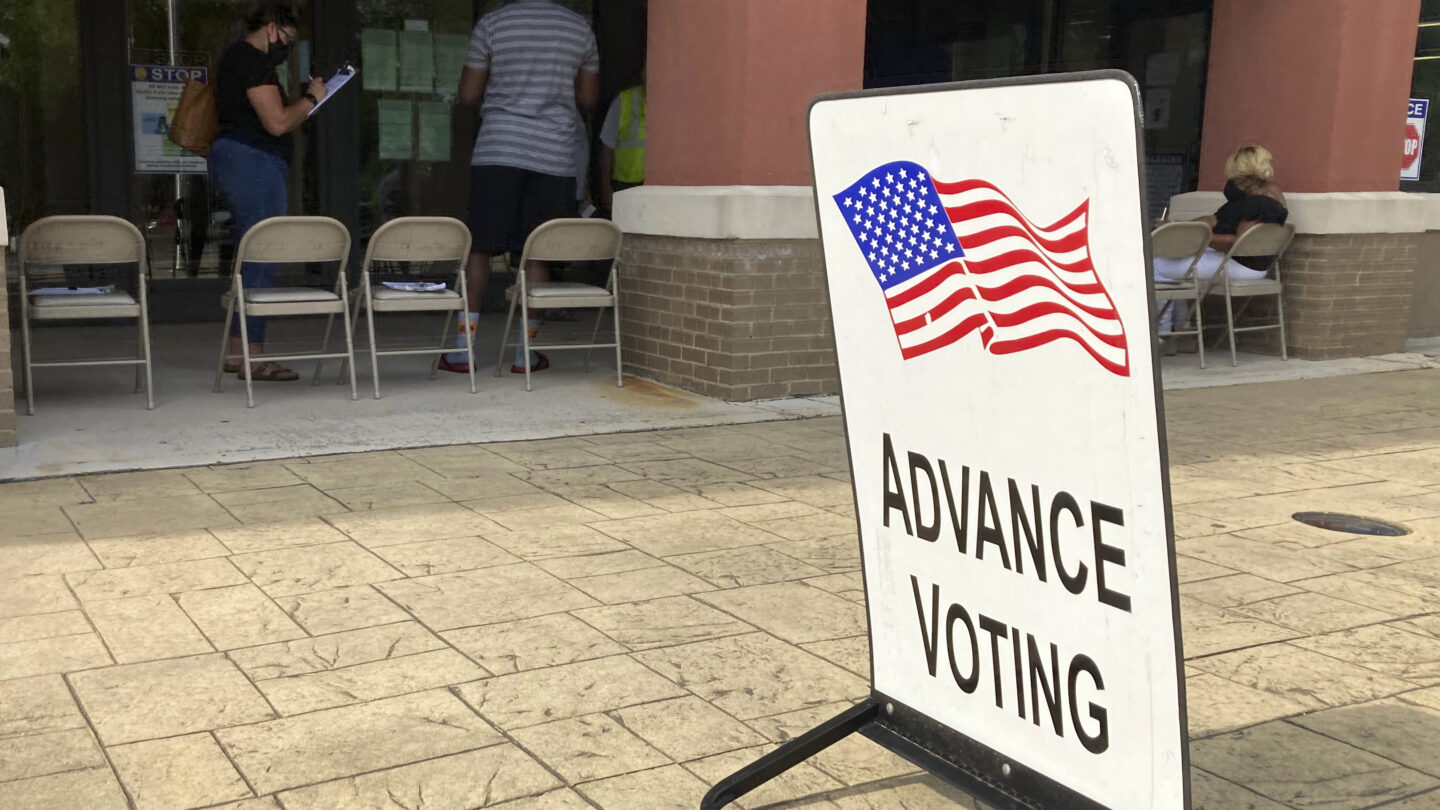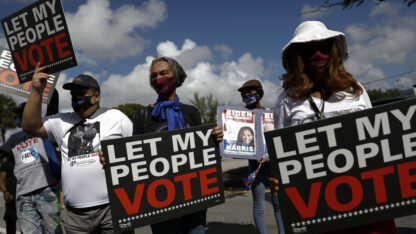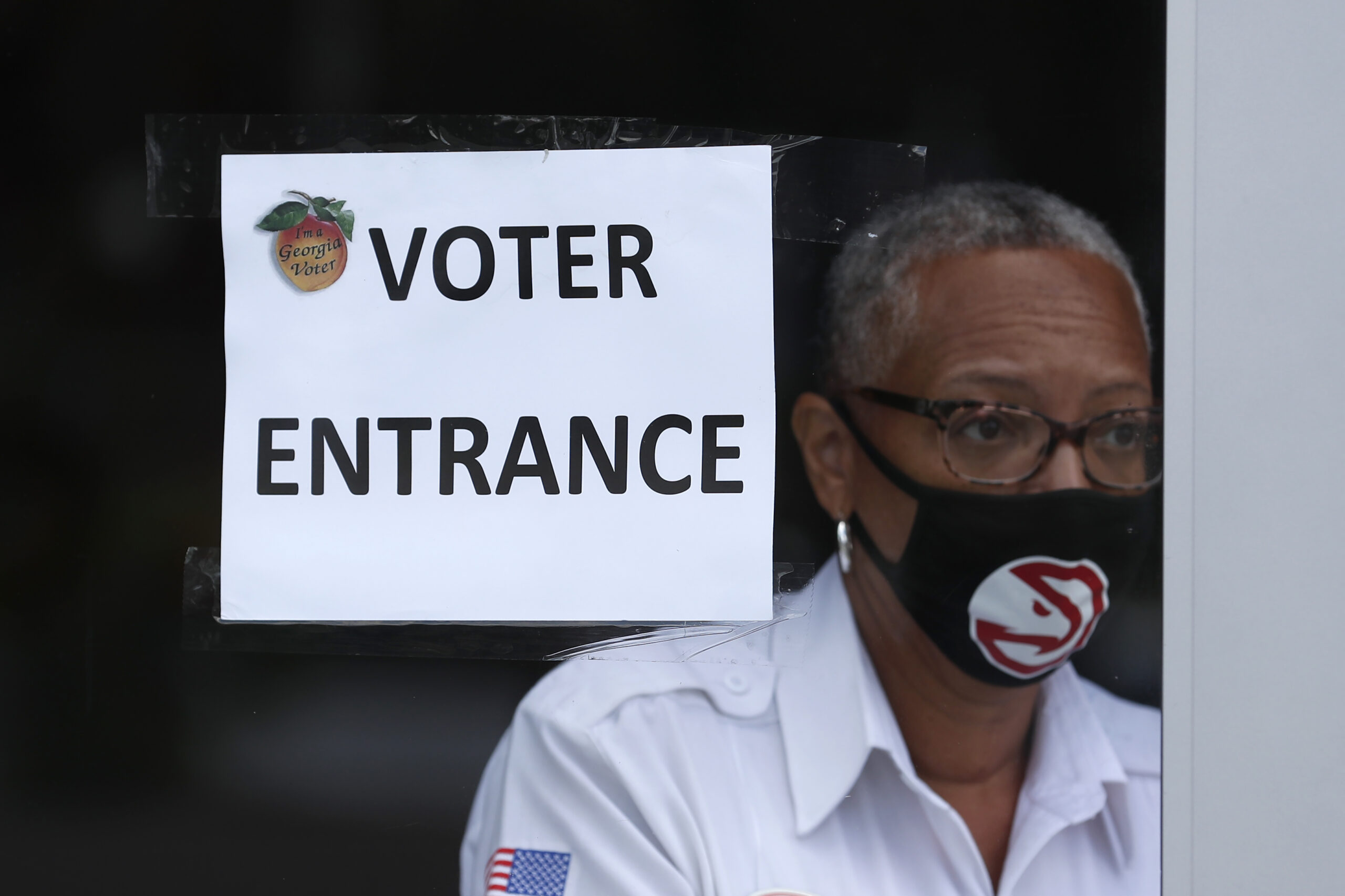This story was updated on October 31, 2022 at 2:20 pm.
Several Metro Atlanta counties have been inundated with mass challenges to the eligibility of tens of thousands of registered voters, filed with the help of groups pushing baseless conspiracy theories about voter fraud.
Local election boards have dismissed most of the mass challenges so far, but new ones can still be filed even now that voting is underway.
Why are all these mass challenges happening now?
While Georgia’s new election law SB-202 made it clear that individuals could challenge an “unlimited” number of voters in their county, there had never been an explicit limit.
And indeed, people filed thousands of challenges even before the new election law passed, spurred by former President Trump and his allies’ false claims of widespread fraud.
“We did see over 300,000 voter challenges filed en masse in the state in December 2020,” says Vasu Abhiraman, senior policy counsel at the ACLU of Georgia.
Abhiraman says Georgia’s new election law did not allow mass challenges for the first time, but the explicit language essentially “blessed” the practice, which has been boosted even further by rhetoric about stolen elections.
What happens when challenges are first filed?
When a challenge to a voter’s ability to vote in the upcoming election is filed, the local election board is instructed to consider the claim “immediately” and use a very high threshold of evidence to move complaints forward.
“They’re supposed to immediately consider the evidence that is submitted and whether it rises to the level of probable cause,” Abhiraman says. “And if it doesn’t, they dismiss it, and that’s it.”
Just arguing a voter filed for a change of address, for example, isn’t enough evidence alone to support moving ahead with a challenge to their eligibility.
The bulk of mass challenges have not passed this initial evaluation and have been dismissed.
Can individual voters challenge another voter in person at the polls?
No. Initial guidance from the Secretary of State’s office implied that was possible, but it has since been corrected. Challenges can only be filed in writing to the local election office.
What happens if I vote after a challenge is filed but before the board weighs it?
An election board might not be able to literally meet “immediately” when every challenge comes in. Abhiraman says that in Gwinnett County, for example, the board wasn’t able to gather enough members to weigh a recent challenge, so it remains outstanding. But until they meet, a voter’s registration is not affected and they can cast their votes like everyone else.
“If you vote in-person and your ballot has gone into the scanner, that’s it,” Abhiraman says. “They cannot take your vote back. There’s no logistical way to take your vote back. It’s a secret ballot at that point.”
Making things a little complicated, the timeline is slightly different depending on the type of voter challenge filed. Challenges to a voter’s eligibility for the current election (known as a 230 challenge) must be resolved “immediately.”
An even more serious version of the voter challenge (referred to as a 229 challenge) aims to cancel a voter’s registration entirely. Election boards have to notify the voter, hold a hearing and adjudicate those challenges within 20 days.
What happens if a challenge meets the probable cause threshold?
The voter’s registration status will show up in the system as challenged.
The law states that, “if practical,” those voters should be notified and given an opportunity to resolve the challenge.
If not, it’s possible a voter may arrive at the polling place to find out their voter registration status is marked as challenged.
What should I do if I arrive at the polls and find out my registration has been challenged?
In some counties, voters can sign a residency affidavit on the spot, fix the issue and vote like they normally would. The Secretary of State’s office is encouraging election offices to adopt this practice.
Otherwise, voters will be told to vote on a paper ballot that will be marked as challenged and won’t be counted until the challenge has been resolved.
“I understand the desire to not vote a challenged ballot and to hope that the matter can get resolved before the voter can come back and vote a regular ballot,” Abhiraman says. “That being said, as the days go by, and especially if you show up on Election Day, go ahead and cast that ballot.”
What happens after I cast a ballot marked as challenged?
“If you’re in that situation and you vote a challenged ballot, a hearing on the merits of whether you are actually an eligible voter, that’s what has to happen,” Abhiraman says.
The election office is supposed to follow up about a hearing. The whole process has to be resolved before the deadline to certify the election, which is November 15th.
Are there other reasons my registration may be marked as challenged?
There are several other reasons your registration can show up as challenged – including standard processes the state and counties run to keep the voter rolls accurate, such as flagging voters currently serving a sentence for a felony conviction, who are not allowed to vote in Georgia.
Should I be worried I won’t be able to vote?
“For the vast majority of voters in Georgia, you’re not getting caught up in this challenge process,” Abhiraman says. “[If] you’re a voter that shows up and finds out you’re in challenge status, being educated that this is going on is the way to ensure that you’re not taken aback, and you can take the proper next steps to ensure things are being resolved and your vote gets counted.”
While it’s unclear how many more mass challenges may happen in the final days of the Midterms, election experts say these mass challenges tie up election workers in hours of additional labor at a moment when they’ve got no time to spare.
“It penalizes the staff, it challenges the voter, it causes delay, puts the poll worker in an awkward position. I call it using a shotgun to kill a flea,” Stephen Day, a member of the Gwinnett County Board of Elections, said at a recent meeting where the board tossed out thousands of challenges.









